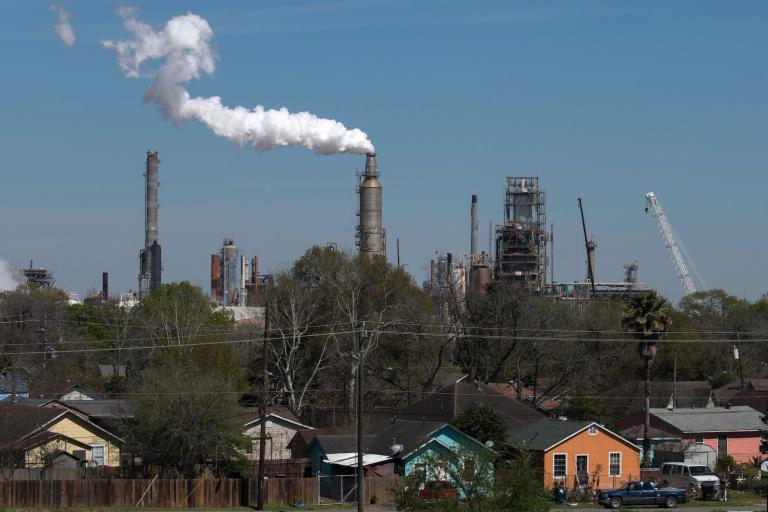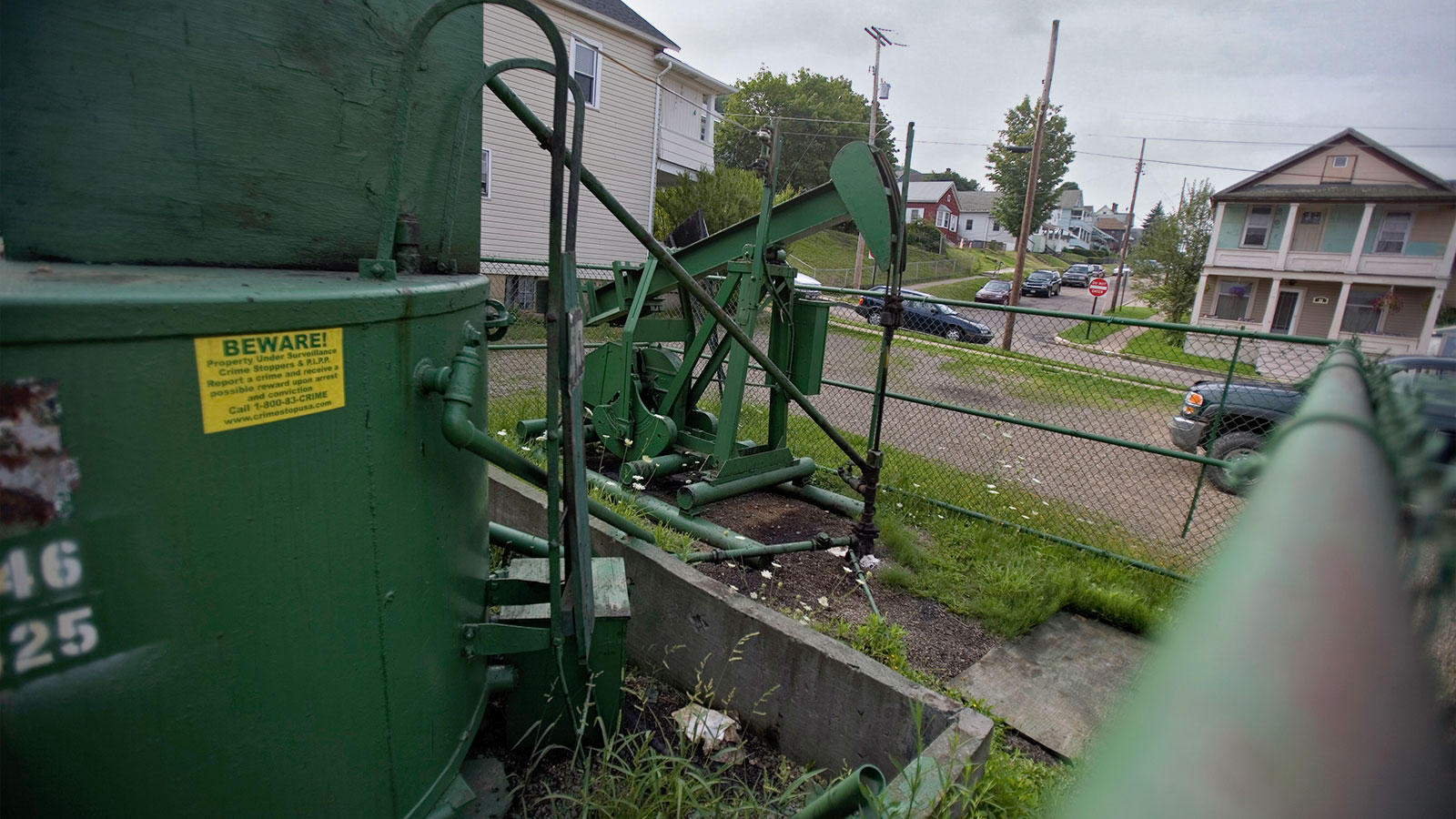An estimated 200,000 abandoned oil and gas wells pockmark Pennsylvania’s Appalachian plateaus and lush forests. These wells, which once produced oil and gas but have since been abandoned by their operators, spew methane, a potent greenhouse gas, and threaten the environment and public health when they leak toxic byproducts. Of the state’s approximately 100,000 active wells, many produce just a few barrels of oil and gas annually and are nearing the end of their lives. Fossil fuel companies are supposed to clean up these sites once they stop producing, but operators regularly shirk these obligations.
To prevent the backlog of abandoned wells from growing, Pennsylvania’s Environmental Quality Board and Department of Environmental Protection were beginning to examine ways to strengthen rules requiring companies to post bonds before drilling. These financial assurances can be claimed by the state if a company goes bankrupt or otherwise tries to get out of its environmental obligations. The idea is that even companies that skip town are still on the hook, and taxpayers don’t end up footing the bill.
Those efforts were put to an end last week, however, when Democratic Governor Tom Wolf failed to veto a bill that banned future increases in financial assurance amounts for conventional vertical wells (as opposed to fracking wells), for the next ten years. Wolf reportedly allowed the bill to pass as part of a deal with Republican lawmakers to secure additional education funding.
“It’s a green light for the conventional oil and gas industry to continue to do what they’ve done, which is abandon these wells whenever they feel like it,” said David Hess, a former director of the Pennsylvania Department of Environmental Protection, or DEP.
Pennsylvania’s current financial assurance requirements are inadequate to cover the cost of plugging and cleaning up wells. The state requires operators to post $2,500 per well or a “blanket” bond of $25,000 for all of a company’s wells. For operators with a hundred wells, that can work out to $250 per well. DEP has estimated that average plugging costs for conventional wells are approximately $33,000 per well, meaning public funds are a critical backstop if operators fail to plug wells. Nearly 70,000 of the state’s wells were drilled prior to April 1985 and are exempt from bonding requirements altogether. As a result, the state has less than $15 in bonds per operational well.
In recognition of this, in November the state’s Environmental Quality Board accepted petitions filed by environmental groups to raise bonding amounts to cover the true cost of cleanup. House Bill 2644, which was sponsored by state House Representative Martin Causer, a Republican from northwest Pennsylvania, was a direct response to the rulemaking that the Board was considering.
The new law, which took effect on Wednesday, does raise the blanket bond amount from $25,000 to a maximum of $100,000 for new wells drilled six months from now, but it also bans the Environmental Quality Board and DEP from raising or otherwise adjusting bond amounts. It codifies the exemption for wells drilled prior to 1985, and it requires DEP to hand out 20 percent of funding provided to it by a well plugging grant program in the Bipartisan Infrastructure Law to “qualified well pluggers” — a category that appears to include the very companies that drill and abandon wells in the first place. Pennsylvania is eligible to receive $395 million over 15 years from the federal government to plug abandoned oil and gas wells. The state has been allocated $104 million so far.
The bill defines “qualified well plugger” as any entity that has either drilled or plugged 10 wells or otherwise demonstrates access to equipment and services needed to plug wells. Hess worries that the new law will allow noncompliant fossil fuel companies to access cleanup funds through the grant program, meaning the money would “go to the bandits in the industry that have caused the problems in the first place.” DEP has issued more than 4,270 notices of violations to operators for abandoning wells over the last six years, he said, and without adequate guardrails, the new funding could end up in their hands.
“Setting aside an automatic 20 percent of this money to go to [oil and gas companies] with very few restrictions on them and with no bidding sets up a bad precedent,” Hess told Grist.
About $40 million of the funding from the Bipartisan Infrastructure Law is contingent on the state making efforts to reduce the number of new abandoned wells through “financial assurance reform, alternate funding mechanisms for orphan well programs and reforms to programs relating to well transfer for temporary abandonment.” It’s unclear whether the new law jeopardizes that funding, since it weakens the bonding program overall.
“The administration has serious concerns” with the law, said Jamar Thrasher, a spokesperson for the DEP. “The administration is currently exploring the next steps to ensure the industry is held accountable in order to protect the environment and that we don’t lose out on millions of dollars in federal funding for well plugging.”
In a presentation before a DEP advisory committee, Kurt Klapkowski, the department’s acting deputy for oil and gas management, noted that there were still options that the agency could pursue to secure the additional funds that didn’t depend on increasing bonding amounts — the option the legislature had just taken off the table.
While the law prevents the Environmental Quality Board and DEP from increasing bonding amounts for conventional oil and gas wells, it doesn’t take away the authority to increase bonding for unconventional or fracking wells, which account for less than 5 percent of wells drilled in the state historically. Some states have strengthened their bonding programs by adding requirements that oil and gas operators report when they expect to retire old wells. These requirements allow state environmental agencies to keep a closer watch on wells nearing the end of their lives that may potentially be abandoned. Some states have also used regulation at the time of transfer, when operators sell off old wells to other companies, as an opportunity to require cleanups.
“They have taken one tool out of our toolbox, but they haven’t eliminated all of the tools,” Klapkowski said in his presentation.




